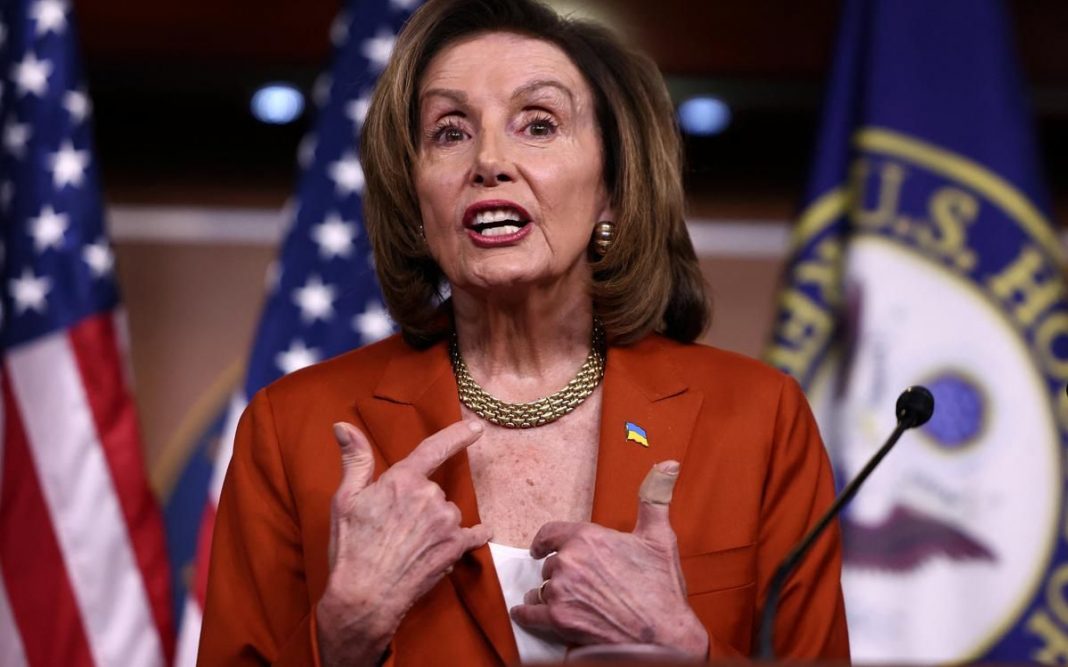Congressional passage of a $1.5 trillion spending measure on Wednesday was powered in large part by bipartisan backing for an emergency aid package for Ukraine, which would provide $13.6 billion in military and humanitarian assistance to the war-torn nation under Russian occupation.
The emergency funds, the details of which were revealed only hours before the vote on Wednesday night, are evenly divided between military and humanitarian assistance, with money earmarked to cover the costs of American troops stationed in Europe as well as to provide emergency assistance to Ukrainians who are still in the country as well as those who have fled.
Amounts have risen from $6.4 billion, which was the White House’s initial request. This reflects the furious backlash in Congress against Russia’s brutal assault on Ukraine — and how, struggling to unite behind meaningful assistance for Kyiv, Republicans and Democrats have resorted to one of the few substantive tools at their disposal: sending money and weapons.
According to a joint statement detailing the spending, “the brave, freedom-loving people of Ukraine and our allies in the region will receive urgently needed investments to fight Vladimir Putin and the Russians’ illegal and immoral invasion,” said Senator Chuck Schumer, a Democrat from New York who is also the majority leader, and Speaker Nancy Pelosi, a Democrat from California.
According to the bill, the Pentagon would receive $6.5 billion to cover the costs of deploying American troops to Eastern-flank allies and providing Ukrainian forces with intelligence support, in addition to backfilling weapons that the United States has already delivered to the Ukrainian government. The Biden administration sought a total of $4.8 billion in military assistance from the outset.
Lawmakers from all political parties have shown an interest in assisting Ukraine’s military, and that interest has only grown as a result of Ukraine’s president, Volodymyr Zelensky, meeting with members of Congress this weekend and pleading for more fighter planes and munitions.
President Biden authorised a $350 million package of weapons earlier this month, which included Javelin anti-tank missiles and Stinger anti-aircraft missiles, as well as small arms and munitions. The shipment represented the single largest authorised transfer of arms from U.S. military warehouses to another country. For its part, the United States has sent more than 15,000 soldiers to Europe, with an additional 12,000 troops committed to NATO’s reaction force in the event of a crisis.
According to the law, the United States Agency for International Development would receive $2.65 billion to offer emergency food aid and health care to Ukrainians and other vulnerable persons in the area. There is also funding for the Justice and Treasury Departments to bring criminal charges against people who breach additional sanctions and export control measures imposed by the United States in an effort to choke off the Russian economy.
She made her comments hours after she talked on the phone with Mr. Zelensky for over 45 minutes, during which she suggested that Congress will likely need to give further assistance in the future.
Also on Wednesday night, the House of Representatives voted 414 to 17 to prohibit oil and gas imports from Russia and to examine Moscow’s membership in the World Trade Organization.
Following pressure from Republicans and Democrats in Congress, President Joe Biden said on Monday that the United States will restrict Russian gas and oil imports. The White House had originally opposed the proposal, citing concerns about a potential jump in gas costs for American consumers.
After being pressed by the White House, Democrats eventually agreed to remove a provision that would have revoked Russia’s favoured trading status in the World Trade Organization.
“The president is correct to want to speak to our friends about that move and what their thoughts are,” said Rep. Steny H. Hoyer, a Democrat from Maryland and the majority leader in the House of Representatives.
Republicans were outraged by the action, since they have long asked for Russia’s preferential trade treatment to be removed. Although many of them opposed the legislation, many others believed it would send an essential message to Moscow.
Texan Representative Kevin Brady, the top Republican on the Ways and Means Committee, said the restriction on Russian oil was “worth our support.” Brady is the top Republican on the committee. but I want to lobby Congress for more measures that would remove Russia’s preferential trade treatment and enable the United States to become energy self-sufficient.”

